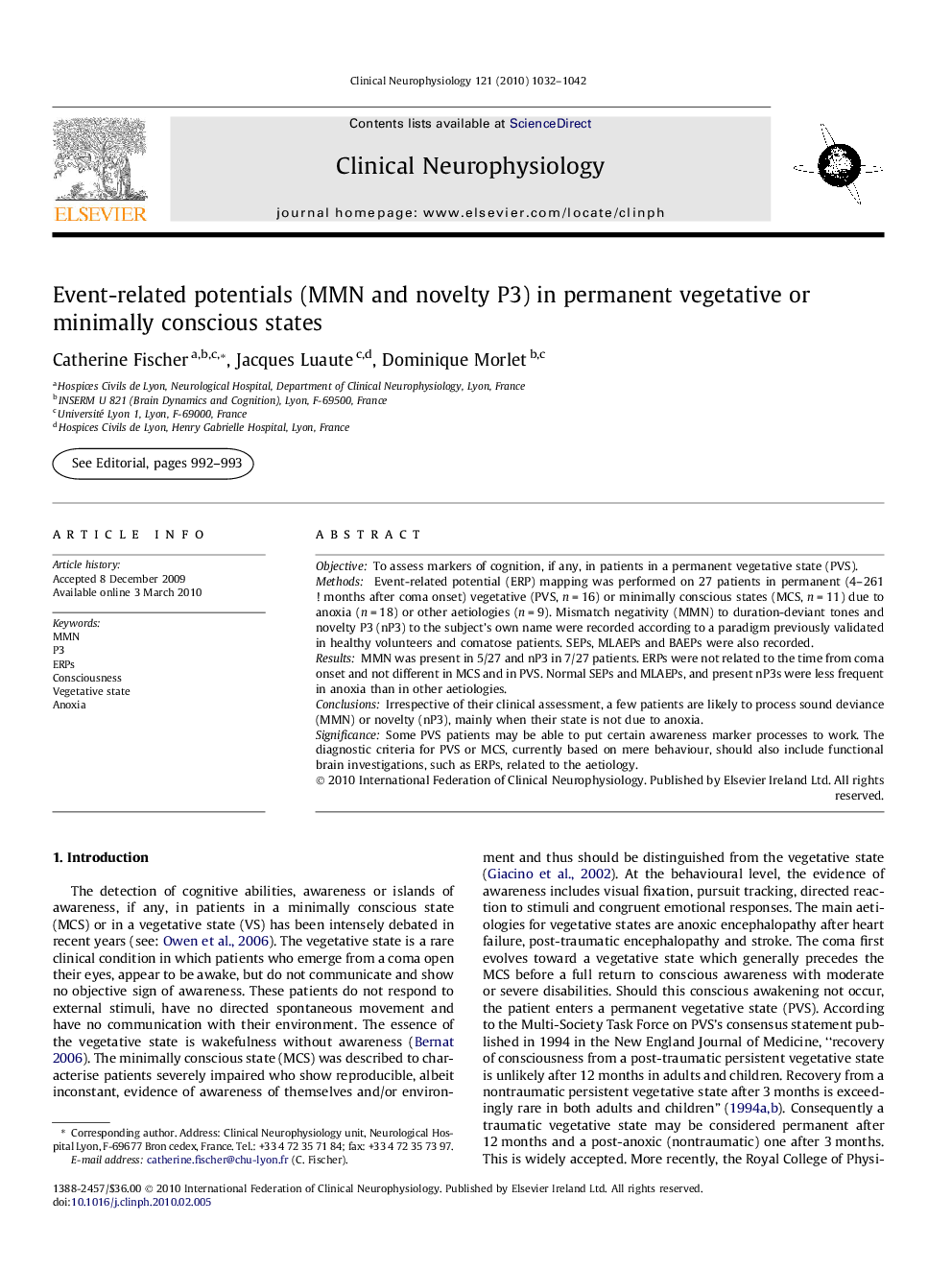| Article ID | Journal | Published Year | Pages | File Type |
|---|---|---|---|---|
| 3045926 | Clinical Neurophysiology | 2010 | 11 Pages |
ObjectiveTo assess markers of cognition, if any, in patients in a permanent vegetative state (PVS).MethodsEvent-related potential (ERP) mapping was performed on 27 patients in permanent (4–261 months after coma onset) vegetative (PVS, n = 16) or minimally conscious states (MCS, n = 11) due to anoxia (n = 18) or other aetiologies (n = 9). Mismatch negativity (MMN) to duration-deviant tones and novelty P3 (nP3) to the subject’s own name were recorded according to a paradigm previously validated in healthy volunteers and comatose patients. SEPs, MLAEPs and BAEPs were also recorded.ResultsMMN was present in 5/27 and nP3 in 7/27 patients. ERPs were not related to the time from coma onset and not different in MCS and in PVS. Normal SEPs and MLAEPs, and present nP3s were less frequent in anoxia than in other aetiologies.ConclusionsIrrespective of their clinical assessment, a few patients are likely to process sound deviance (MMN) or novelty (nP3), mainly when their state is not due to anoxia.SignificanceSome PVS patients may be able to put certain awareness marker processes to work. The diagnostic criteria for PVS or MCS, currently based on mere behaviour, should also include functional brain investigations, such as ERPs, related to the aetiology.
